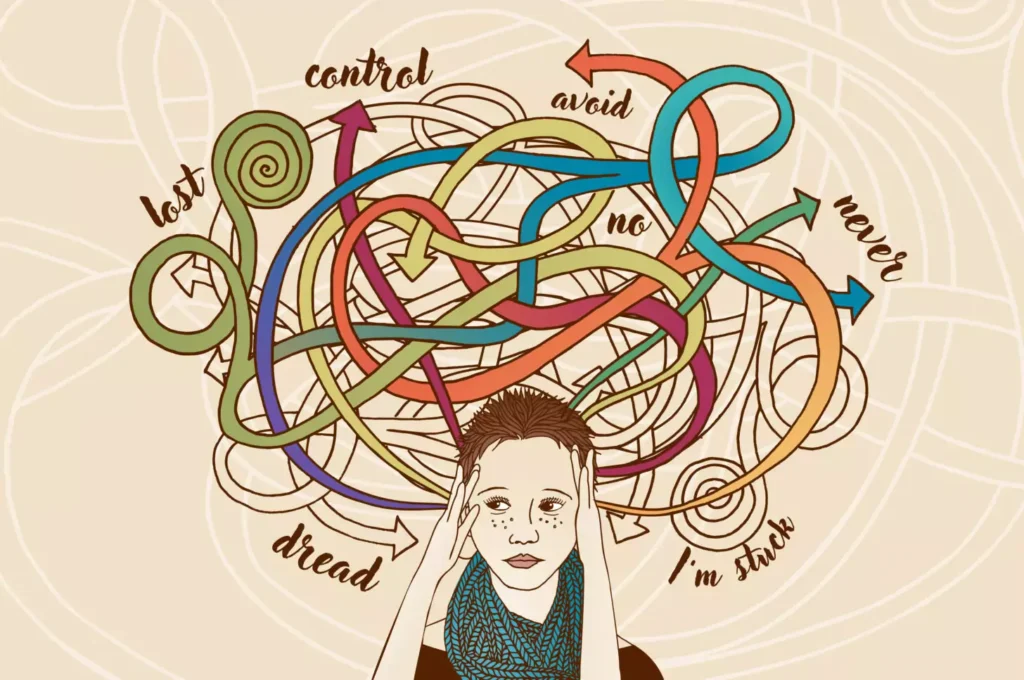Eating disorders are complex mental health conditions that affect millions of people worldwide. Traditionally, treatment for these disorders has focused on a combination of therapy, medication, and lifestyle changes. However, recent scientific research suggests that a seemingly unlikely substance, psilocybin, found in certain mushrooms, may hold promise as a complementary tool in the treatment of eating disorders. In this blog post, we will explore the emerging evidence surrounding the healing effects of psilocybin in eating disorder care.
Understanding Eating Disorders:
Before delving into the potential benefits of psilocybin, it’s crucial to understand eating disorders. Anorexia nervosa, bulimia nervosa, and binge-eating disorder are among the most common eating disorders, and they have a profound impact on both physical and psychological health. These conditions often involve distorted body image, restrictive eating patterns, and an intense preoccupation with food, weight, and shape.
Conventional Treatments and Their Limitations:
Traditional treatments for eating disorders primarily involve cognitive-behavioral therapy (CBT), psychotherapy, nutritional counseling, and medication. While these interventions have helped many individuals, some patients do not respond adequately to these approaches, leaving them in desperate need of alternative treatments.
The Potential of Psilocybin:
Psilocybin is a naturally occurring psychedelic compound found in certain species of mushrooms. Recent studies have shown that psilocybin-assisted therapy can have profound therapeutic effects on various mental health conditions, including depression, anxiety, and post-traumatic stress disorder (PTSD). Researchers are now exploring its potential benefits in treating eating disorders as well.
- Breaking the Cycle of Negative Thought Patterns:
Eating disorders often involve persistent negative thought patterns about one’s body and self-worth. Psilocybin has been shown to disrupt these rigid thought patterns, allowing individuals to gain a more objective perspective on their thoughts and behaviors. This shift in perception can be instrumental in the recovery process.
- Promoting Emotional Processing:
Many individuals with eating disorders use their disordered eating behaviors as a way to cope with underlying emotional issues. Psilocybin-assisted therapy can help individuals access and process these emotions in a safe and supportive environment, potentially reducing the need for harmful coping mechanisms.
- Enhanced Self-Acceptance and Body Positivity:
Psilocybin experiences are often described as inducing a sense of interconnectedness and self-acceptance. This newfound self-compassion and appreciation for the body can counteract the negative body image issues commonly associated with eating disorders.
- Facilitating Therapeutic Insights:
During a psilocybin session, individuals may gain insights into the root causes of their eating disorder behaviors. This deeper understanding can be a crucial step toward sustainable recovery.
Challenges and Future Directions
While the preliminary results of psilocybin-assisted therapy in eating disorder treatment are promising, there are still many challenges to overcome. Ensuring safety, standardizing protocols, and conducting large-scale clinical trials are essential steps in the path toward integrating psilocybin into mainstream eating disorder care.
The potential of psilocybin in eating disorder care offers a ray of hope for those who have struggled with these complex conditions for far too long. While more research is needed to fully understand its benefits and risks, the early findings suggest that psilocybin may be a valuable addition to the therapeutic toolbox for treating eating disorders. As our understanding of this psychedelic compound grows, it could provide a new path to healing and recovery for those who need it most.”
Check out our recent feature in The Cut, New York: Could Mushrooms Be the Drug to Finally Cure Eating Disorders?
Want to join us on an upcoming Buena Vida Psilocybin Retreat? See available dates here.


